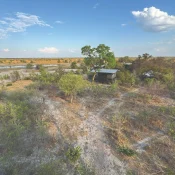
Rural Tourism in Matabeleland: A Pathway to Sustainable Development
Rural tourism, a burgeoning sector, is increasingly recognized as a potent tool for economic growth and community development. In Zimbabwe, the Matebeleland region, with its rich cultural heritage, natural beauty, and warm hospitality, offers immense potential for this form of tourism.
Rural tourism involves providing tourism experiences in rural areas, emphasizing authentic cultural interactions, nature-based activities, and sustainable practices. It differs from traditional mass tourism by focusing on smaller-scale, community-based initiatives.
Matebeleland, with its diverse landscapes, from the expansive plains of the Lowveld to the rugged beauty of the Matopos Hills, is a natural haven for nature enthusiasts. Activities such as game viewing, birdwatching, and hiking can be tailored into unique tourism packages. Moreover, the region’s rich cultural heritage, embodied in the Ndebele people’s art, music, and traditions, provides an authentic experience for visitors.
One exemplary initiative in Matebeleland is the community-based tourism project in the Bubi-Lupane area. Local communities have come together to offer tourists opportunities to experience rural life firsthand. This includes homestays, where visitors can immerse themselves in the local culture, and guided tours of the surrounding countryside. The proceeds from these activities are reinvested into the community, leading to improved infrastructure and social services.
Another successful example is the Matopos National Park, which has embraced community-based tourism. Local communities are involved in various aspects of the park’s operations, from guiding to providing accommodation. This approach not only generates income for the community but also ensures the park’s sustainability.
The benefits of rural tourism for Matebeleland are manifold. It can create employment opportunities, especially for women and youth, who often form the backbone of the rural workforce. Additionally, it can help to conserve the region’s natural and cultural heritage through sustainable practices. By providing an alternative source of income, rural tourism can reduce pressure on natural resources, such as forests and wildlife.
However, challenges remain. Inadequate infrastructure, limited access to markets, and lack of capacity building are some of the hurdles that need to be addressed. Government support, through policies and investments in infrastructure, is crucial for the growth of rural tourism. Additionally, capacity building programs for local communities are essential to ensure the sustainability of tourism initiatives.
In conclusion, rural tourism holds immense promise for Matebeleland. By leveraging the region’s natural and cultural resources, and by adopting sustainable practices, it can become a catalyst for economic growth and community development. With concerted efforts from the government, private sector, and local communities, Matebeleland can position itself as a leading destination for rural tourism in Zimbabwe and beyond.
Text by Martin Chemhere
All Categories
Recent Posts
Kazuma Safari Camp –
Kariba’s Kumabirira Lodge Is The Perfect Hideaway
Contact Us
+263 789 532 918




